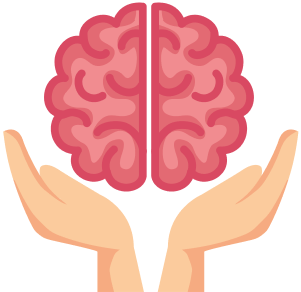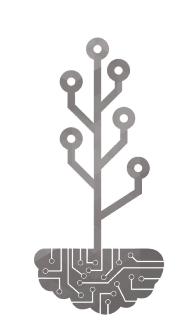Are you or someone you know experiencing frequent mood swings, impulsivity, or sleep problems? If so, taking a bipolar disorder test can be a helpful first step in identifying potential signs of bipolar disorder. The test consists of a series of questions related to common experiences among people with bipolar disorder, such as elevated or irritable mood, grandiosity, racing thoughts, and increased energy.
This condition is categorized mainly into two types:
Bipolar I Disorder is characterised by manic episodes that last at least 7 days or by manic symptoms that are so severe that immediate hospital care is needed. Depressive episodes also occur, typically lasting at least 2 weeks.
Bipolar II Disorder involves a pattern of depressive episodes and hypomanic episodes, but not the full-blown manic episodes described above.

On average, you will need to go through around 20 questions, and in some cases, you might need to ask a family friend for help.

While a professional diagnosis is crucial, our online bipolar quiz can help you recognize potential signs of bipolar disorder. However, taking a bipolar disorder test can be a useful first step in identifying potential signs of bipolar disorder and deciding whether to seek professional help.
Bipolar disorder is a mental health condition that affects approximately 1% of the population worldwide. Take our free bipolar test online from the comfort of your home and gain insights into your mental health. Remember, this test is for preliminary insight and cannot replace a professional diagnosis.
Bipolar I Disorder |
Manic or mixed feature episode with or without psychosis and/or major depression. | |
Bipolar II Disorder |
Hypomanic episode with major depression; no history of mania, but can have a history of hypomania. | |
Cyclothymia |
Hypomanic and depressive symptoms not meeting bipolar II criteria, over two years. | |
Bipolar disorder, not specified |
Criteria not met for major depression, bipolar I or II, or cyclothymia. | |
Bipolar disorder, mixed features or major depressive disorder, mixed features |
Mixed type with concurrent features of hypomania or mania and depression. | |
Substance-induced maniar |
Mania due to substances like steroids, alcohol, cocaine, or prescription antidepressants. | |
Unspecified |
Used for suspicion, such as in an emergency department. |
Our comprehensive ADHD and bipolar quiz is available online for free, helping you distinguish between these conditions. Our online bipolar disorder test, framed around DSM-5 criteria, can be a helpful tool in recognizing the potential signs of Bipolar I or II disorders. It includes questions about experiences common in bipolar disorder, like mood elevation, grandiosity, racing thoughts, and fluctuating energy levels. This bipolar disorder test is a preliminary step - consult a professional for an accurate bipolar vs ADHD diagnosis.
It can be taken online from the comfort of your own home, without the need for a referral or appointment. It's important to note that our test is not a diagnostic tool and cannot replace a clinical evaluation by a licensed mental health professional. However, it can provide preliminary insights and help you decide whether to seek further evaluation or treatment.

Research shows bipolar and ADHD often coexist - our "bipolar and ADHD test" can help identify symptoms of both conditions. In fact, up to 60% of individuals with bipolar disorder have at least one additional psychiatric disorder.
Understanding bipolar disorder vs ADHD is crucial - our bipolar quiz can help you identify key differences.
We offer resources for bipolar and ADHD, including a "bipolar or ADHD quiz" to help you understand your symptoms. Start your mental health journey with our free bipolar test online - it's quick, accurate, and informative.

Bipolar disorder is a mental health condition characterized by episodes of mania and depression. These episodes can vary in severity and frequency and can significantly impact daily life.
Yes, ADHD and bipolar disorder can have overlapping symptoms, such as impulsivity, mood swings, and hyperactivity. This can make it difficult to differentiate between the two conditions and may lead to misdiagnosis. A thorough evaluation by a mental health professional is essential to get an accurate diagnosis.
Only a licensed mental health professional can diagnose bipolar disorder or ADHD. If you're experiencing symptoms of either condition, it's important to seek an evaluation to receive an accurate diagnosis and appropriate treatment.
A bipolar crash, also known as a depressive episode, can feel like an overwhelming sadness, loss of interest or pleasure in activities, fatigue, changes in appetite or sleep patterns, and difficulty concentrating. It can last for weeks or months and can significantly impact daily life.
A hypomanic episode of ADHD is a period of elevated or irritable mood, increased energy, and decreased need for sleep that lasts for at least four consecutive days. It is a less severe form of mania than seen in bipolar disorder and does not involve significant impairment or require hospitalization.
Bipolar disorder is typically diagnosed through a clinical interview with a licensed mental health professional. The mental health professional may also use assessment measures and talk to the person's previous healthcare providers and family and friends.
Bipolar disorder cannot be cured, but it can be effectively managed with the right treatment, which may include therapy, medication, or a combination of both. While some people may experience a complete remission of symptoms, others may continue to experience bipolar episodes but at a more manageable level.
About 2.8% of adults in the US have bipolar disorder.
Diagnosing bipolar disorder typically takes several sessions and may involve various assessments, such as mood diaries and rating scales. Getting the correct diagnosis can take some time, as the symptoms can be similar to other conditions.